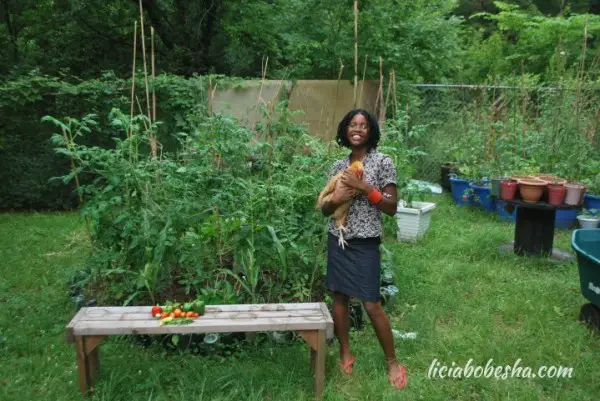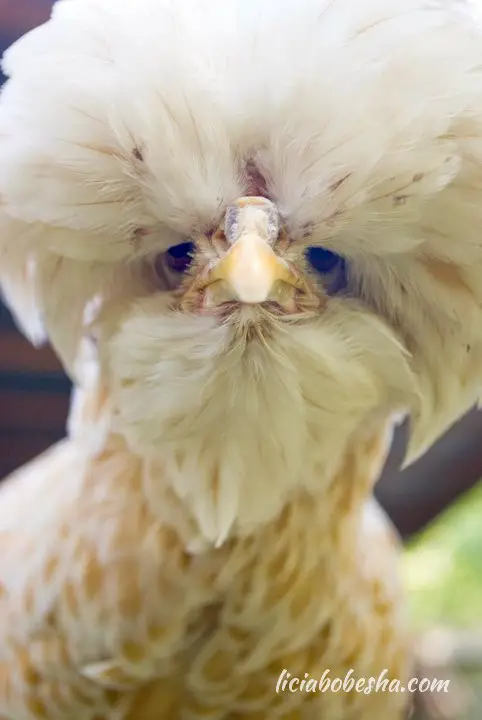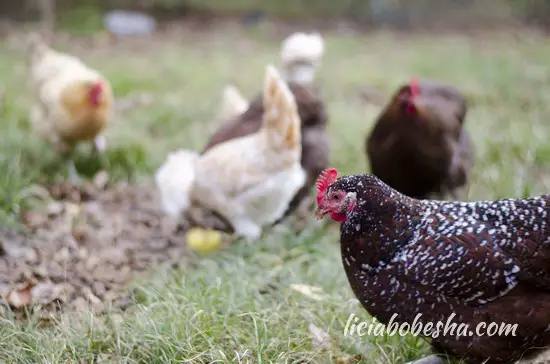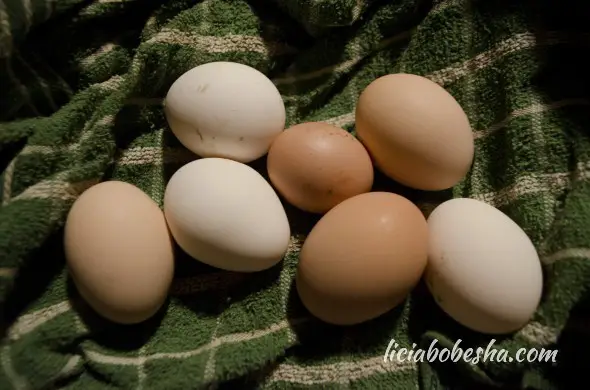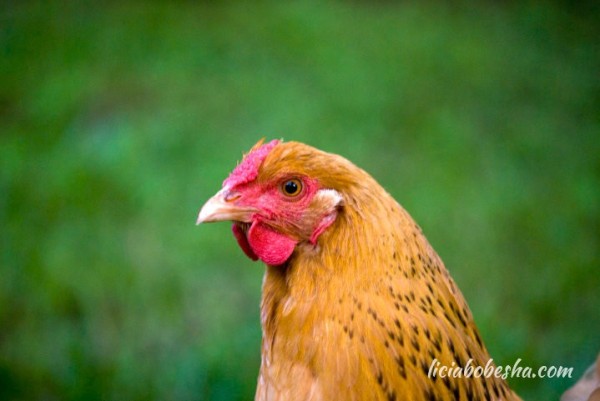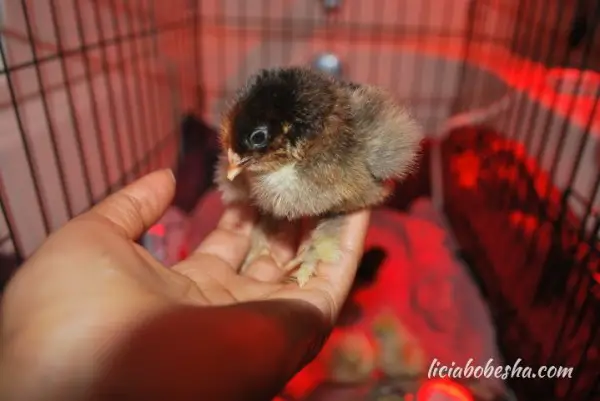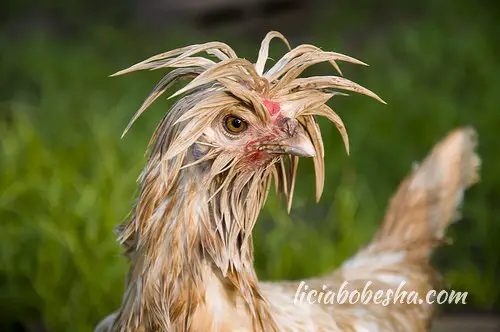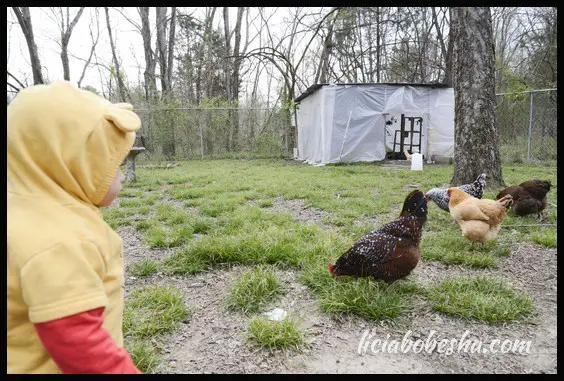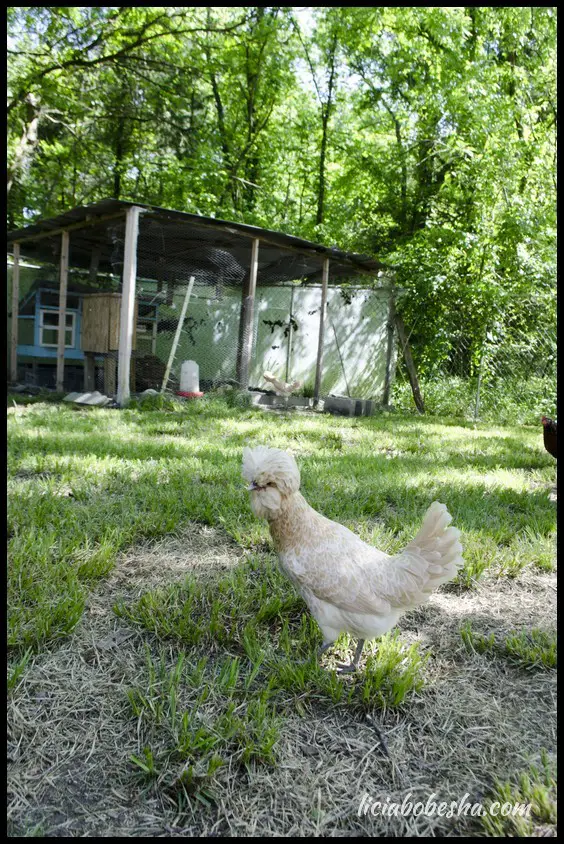By Alicia Barnes, liciabobesha.com
The more I learn about our industrial food system, the more I find myself embracing old fashioned ways. My yard is too shaded to have a big garden, but I found my semi-shaded lot is perfect for a flock of pet chickens.
I’m fascinated by animals. Chickens are no exception. Back in 2010, I was looking for new companions, and I liked the idea of chickens because they would live outside and also give us eggs. My husband was won over when I discovered chickens are a natural and effective way to control ticks. Our property backs up to a wooded area and during tick season, we and our two small dogs were constantly finding ticks on us after coming in from outside. We tried pesticide for years, but we didn’t like using chemicals, and they only reduced the population briefly. Chickens were just what we needed. Since day 4 of having just our first chicken, we have never seen another tick in the backyard.
From sunrise to sunset, my chickens walk from one side of the yard to the other eating bugs, sunbathing, strutting, and taking dirt baths. When people find out I have a backyard flock, they often have lots of questions. Here are a few answers that might help you decide if you’re ready for your own feathered ladies.
1. Why buy chickens of your own instead of just getting eggs and/or meat from a local farm?
My chickens are just for love and eggs. We don’t eat them. We still buy meat and sometimes eggs when our flock is running low from a local farmer. It’s like my little garden. I enjoy collecting my own and having control, but I don’t try to sustain myself with my own gardening projects. Plus do you see how beautiful these birds are?
2. Did you need to get special licensing to own chickens in your city/town?
I didn’t need a license or any approval. Chicken keeping is completely legal in the city limits of my town. Some areas limit the number of chickens or ban roosters, but most areas are chicken friendly. Usually any rules are written in animal ordinances by the city and/or county.
3. What is the upkeep like? How do you keep their area clean? How do you control smell?
One of the great things about mostly free ranging is there’s very little clean up and smell since my hens do their business all over the yard, there’s not a concentrated caged stinky pen. However, after the winter when they’ve spent more time sheltering in their insulated run, there is more poop in one area and when it warms up, there is definitely a smell that takes a little while to clear out. It’d clear out faster if I were better about getting in there and shoveling poop into my compost, but with only four birds now, I find opening the walls back up and letting it air out, things quickly break down into dirt. I’ve never had any complaints from neighbors and most of the time I only smell the coop when I am in it. For people averse to animal droppings, chickens are not a good pet especially if they are not going to free range. Because my chickens fertilize the whole yard, it’s not a good place to go roll around in the grass, but it’s not a wasteland or anything as you can see for yourself in this video:
4. How do you protect chickens from predators (dogs, cats, coyote, etc)?
Everything likes to eat chickens. It can be hard to protect them. I started out with 9 expecting only half to make it to adulthood, yet all of mine did. My chickens are free range in my fenced-in backyard during the day. My fence is 6 feet. At night they are locked up in a coop to protect them from mostly raccoons. Our two small dogs do their part to keep predators away, but we have unfortunately suffered 3 losses to predators over the last 4 years. I’m pretty sure one or two raccoons, maybe a very large cat but probably a raccoon, and a hawk. We’ve lost two chickens who never woke up in the morning after going to sleep in the coop. So in my fourth year I’m now down to 4 ladies.
5. How many eggs do the chickens produce?
During their first and second years of life hens hit their production highs. After that it drops off steeply. At their peak, my hens each were laying one egg 6 out of 7 days a week. With 9 birds, it was an insane amount of eggs even though I bought most of my birds for their looks, not their production values. Now with only 4 older birds we get about a dozen and a half eggs during a normal warm week. Chickens don’t lay when they’re molting. They also don’t tend to lay very much when the days are short such as in the winter.This is one reason chicken houses use lights to simulate the light of summer to keep chickens producing eggs at peak production year round. I think this is cruel. I do not use any lights on my chickens. Instead when they lay less, we eat less and when they lay more, we eat more. I supplement our eggs with those from a local farmer who raises his hens similar to how I raise mine.
Eggs one day from the first year.
6. How long do the chickens live?
How chickens are raised affects how long they live. An average between the breeds is 5-10 years. The older they get the fewer eggs they lay, but they still are great at controlling bug populations and fertilizing the yard.
Paulette, my oldest hen, is five.
7. Where did you buy the chickens from?
I ordered 8 one day old chicks from mypetchicken.com. I got 3 different breeds of heritage female chicks. They came in the USPS mail. We picked them up at the post office. They were tiny and adorable. We raised them inside until they were large enough to keep their own body temperature outside. I got one 9 month old mixed breed chicken from someone in town who had too many. Her flock was plucking her feathers.
One of my feather-footed babies. There are many beautiful breed options.
8. How does the cost of owning chickens and harvesting eggs from them compare to the cost of buying eggs from the grocery store on a regular basis?
It’s been so many years since I’ve bought grocery store eggs, I don’t remember what they cost honestly. I do not buy eggs from the grocery store, not even the one from the cage free box. Cage free is a marketing term. Those chickens have horrible lives, live in crowded factory conditions, with all kinds of health and ethical issues. Grocery store eggs are cheap, but it comes at too high an ethical cost for me. A good brief overview is The Story of an Egg. The farmer I buy from when I need to supplement sells a dozen eggs for $4. Since my chickens free range and only get supplemental feed and since I bought them for only a few dollars each, they have well over paid for themselves. The most expensive thing we’ve bought is the wire fencing to protect their coop at night and the plastic sheeting to insulate in winter. I would not recommend chicken keeping if the primary motivation is to save money. I’d locate someone who already keeps chickens and has extras to sell.
Chicken after a thunderstorm
9. How does your toddler interact with the chickens?
My two year old loves watching the chickens. He’d love to chase them all the time, but I won’t let him. I try to teach him to respect animals. Sometimes we go out with food scraps and he throws it to the ladies. He asks to go see them all the time. When he was fussy as a little baby, I could bring him outside to see the chickens, and he’d be soothed as he watched them walking around and clucking.
10. How much space do the chickens need?
Chickens are very adaptable. Industry crowds then too much, but a backyard flocks tend to do better with a little room. Four square feet a bird is popular for small home flocks. If they’re overcrowded, you’ll know like my poor Paulette who lost so many feathers before I adopted her. We did not build our coop big enough to sustain 9 chickens 24/7, but it was perfect for them to sleep in and to freely come and go from sunrise to sunset.
Backyard chicken keeping has been wonderful for me. I saw immediately why so many families all used to keep their own small flocks. It’s really sad we’ve moved away from that. If you’re interested in knowing more about my set up and experience, leave a comment below!
Alicia keeps chickens in a small college town that often challenges her resolve to live as simply and as stress-free as possible. When she’s not working, rereading the same children’s books, cooking, or wondering how crunchy she’s become, she’s busy updating her site, liciabobesha.com. You can follow her on facebook.

